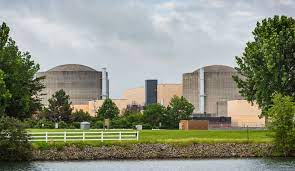
Welcome readers to a fresh look the Town of Cornelius, its history and impact on our region. This is the first of a series of articles designed to teach and inform. I promise no politics, no fake news, and no political opinion. I do promise some interesting stuff and a few belly laughs to boot. Please join me and read on! Today, I offer a story of Cornelius history and some [hopefully] interesting facts about Our Town.
—Jim Duke
Should Birkdale Be in Cornelius? Have you ever wondered why most of Birkdale lies within Huntersville rather than Cornelius? Back when the three towns were negotiating boundaries, Huntersville took a big chunk of territory above Sam Furr Road, which to someone like me seems to be a logical southern border for Cornelius. When you look at the map [see Town website] it shows this big bite-size piece of commercial property neatly clipped out of what should logically have been Cornelius.
How did this happen? According to former Mayor Gary Knox, this is how the deal went down. Planners that were drawing town boundaries were focusing on utility lines, easements and service areas. Sam Furr Road wasn’t much of a road back then. The road had a blinking red light where it crossed Statesville Road and even after I-77 was built, it only had an over pass a-la Westmoreland Road. The areas that are now Birkdale were dairy farms and woods and nobody, but future looking developers, saw its future commercial value. With future lake front property in the mix, Cornelius decision makers eyed it over the farm land to the south.
That Dam Project: What most folks don’t know is that planning for the dam that created Lake Norman was begun in the 1920’s with Duke Power buying up farm land well ahead of the project. When the dam was completed in the early 60’s and a shoreline began to materialize, Duke actively worked the zoning and used political pressure to negotiate protections for the area from random development. As the water rose, the Lake Norman Yacht Club was formed and the area along Jetton Road was scheduled to be a steam power plant. Farmers were warned that soot from the proposed steam plant could damage crops and many sold their land to Duke. Later when plans changed, what was to be an industrial site became The Peninsula.
So Here We Are: Cornelius’ Town boundary was defined by a lake, a power company’s utility easements, and its residential character of planned neighborhoods by that very same company. The result was a boundless gift of opportunity for many and a rich residential tax base for the Town. All of which was the result of the acts of the corporate visionaries at Duke Power. Good job Duke Power, we love it here! But, all of this bounty came at a high cost to some of those early residents and farmers whose properties touched the Catawba River. Long time family farmers like John Wally and Arthur Brown had to sell the farms that had been in their families for generations. Many others were forced to move from inherited land. Some early sales of property weren’t bonanzas to those forced out due to rising water and a pending steam power plant. Compensation for land was in some cases simply a token payment, but for others quite lucrative for their multi-generational properties.
The Peninsula, Torrence Chapel, and Patrick’s Purchase are Born: When Duke Power’s plans to develop a steam plant were abandoned, its land development arm, Crescent Land and Timber, was contracted to develop a significant piece of the 75 miles of shoreline and land adjacent to Jetton Road. Mayor Woody Washam recalls a number of farmers becoming wealthy overnight as the shoreline developed and planned communities took shape. In Woody’s view town negotiators put their bets on lake shore property rather than farmland adjacent to Sam Furr Road.
The East Side: Before there was a Town Hall, an anticipated Arts Center, and a well-lighted east Catawba Avenue there was Old Town Cornelius with its Brick Row, old cotton mill, mill town cottages, and a smattering of small businesses and banks. Current resident and ad hoc Town Historian Jack Conard can show you thousands of photographs of what Cornelius was before “the lake” and he can talk for hours about the loss of land and the growth of homes that replaced his treasured woodlands. Jack’s photographic record of Cornelius and its families is a “must see” and a portion of which is on display at Town Hall in a mini-museum showcasing some of his work. His photos capture the names, faces, and character of Old Town Cornelius. You can find Jack with his photo notebook socializing some evenings at the Olde Town Public House near Town Hall.
How to Speak Cornelian: If you are a long time resident of Cornelius, you are for the most part welcoming folk and have benefitted from the healthy growth of lakeside living. But these folks can tell if you are not a native even if you’ve been around for quite some time. It is how you pronounce Jetton Road, Westmoreland Road, or Stough Farm Road. To a native, it’s “Jettin”; “Westmore-LAN” and “Stoow” [sounds like cow]. Woody’s favorite from his youth was Ca-NEIL-yus. If you listen for these words you’ll be able to spot a native as quickly as they can spot a post-lake arrival. Street names can also vary depending upon your geography or family name. To some, Washam Potts Road is really Potts Washam Road. I heard this from a reliable source that will remain unnamed.
Next month, I will be writing about the generous people of Our Town who head up some of the most effective and generous local charities. If you know of a really good local charity and think it deserves a look, just email me at jcdduke@bellsouth.net

Jim Duke
Jim Duke, in addition to being a former member of the Cornelius Town Board, is the former president of the Peninsula Property Owners Association. He also chaired then Mayor Jeff Tarte’s water task force which resulted in corrected water bills. Next month: Charities and Non-profits.





